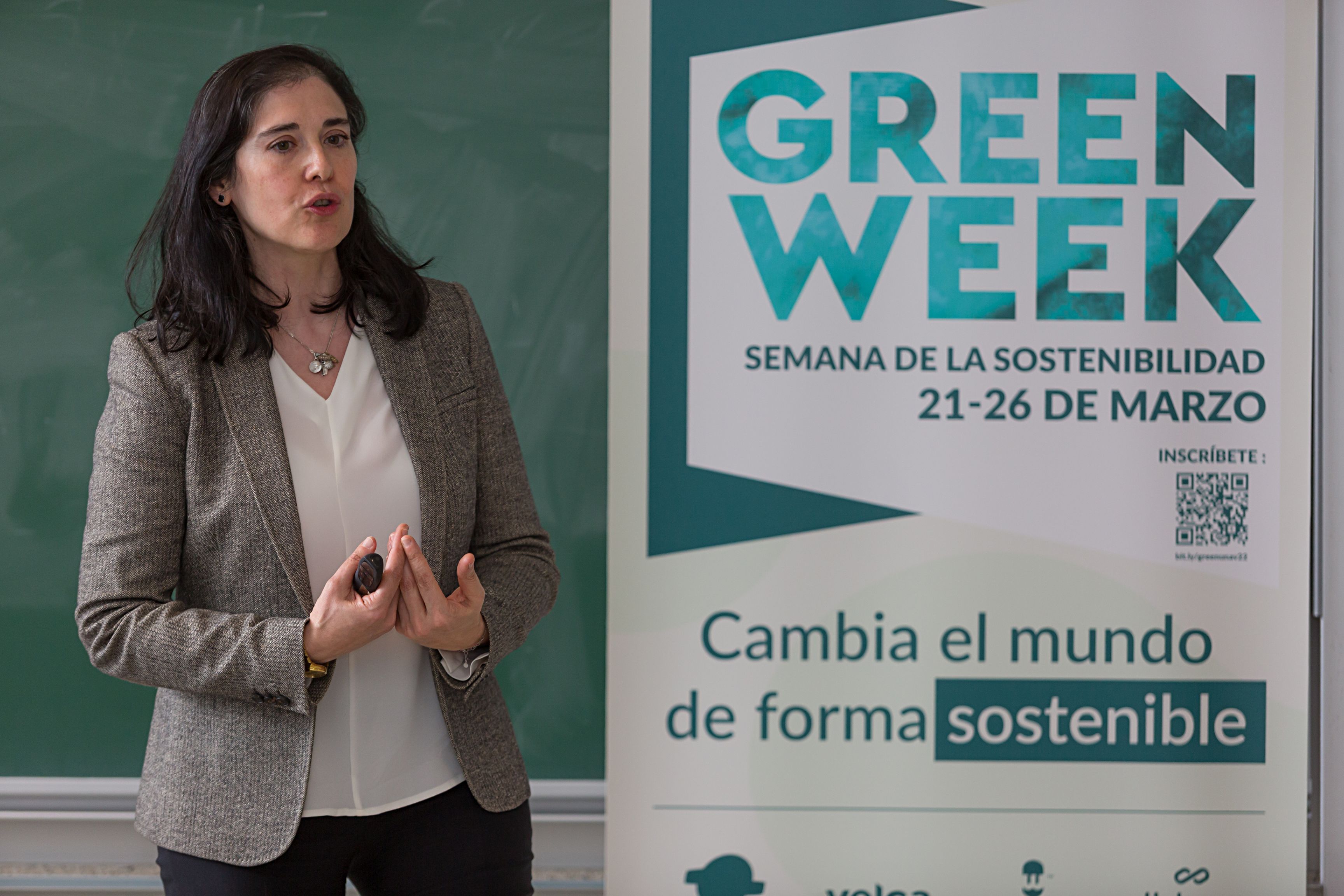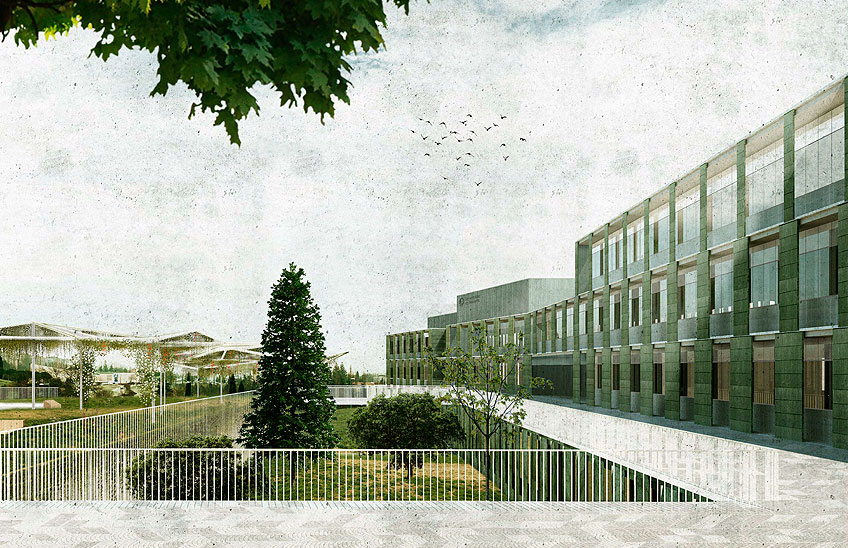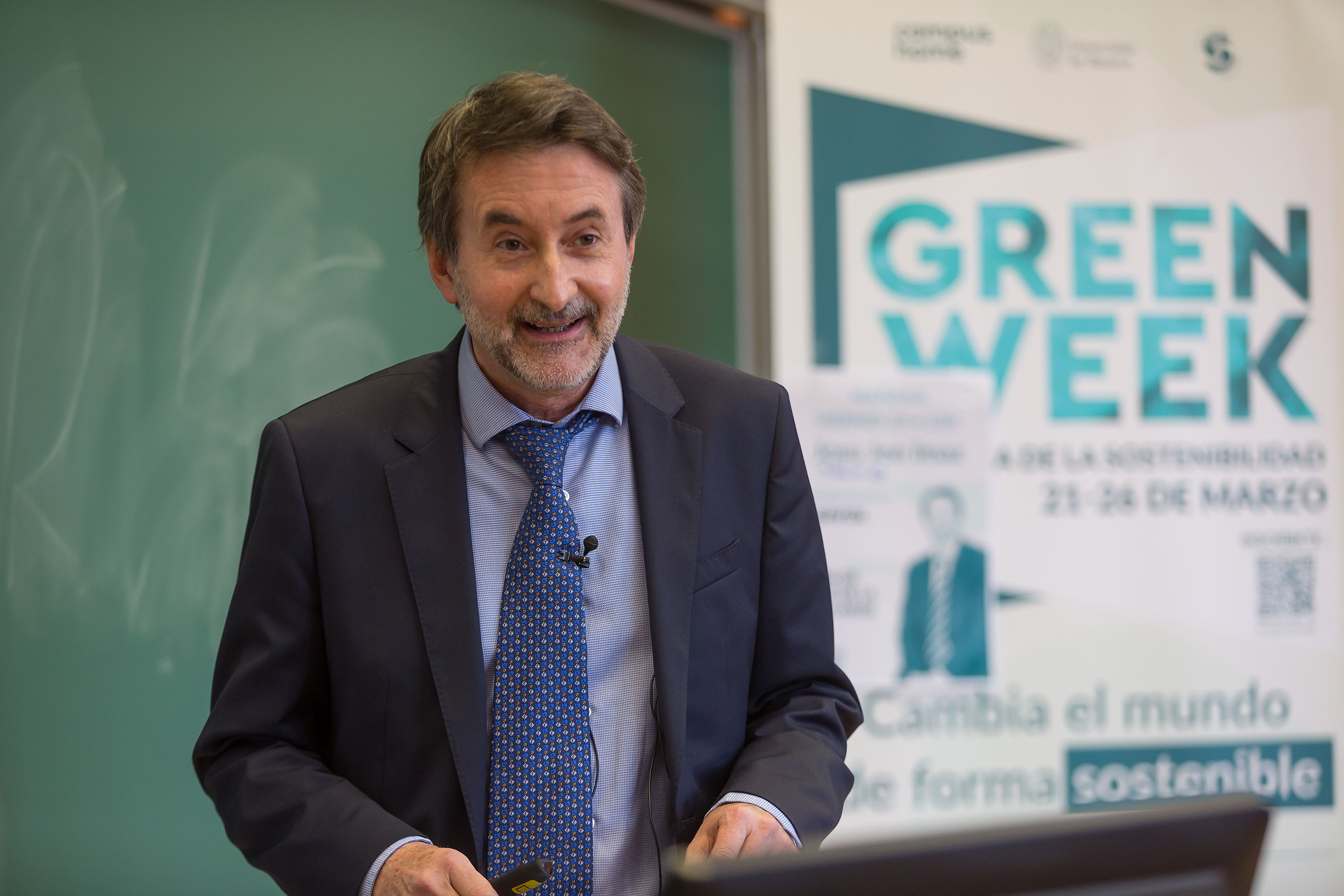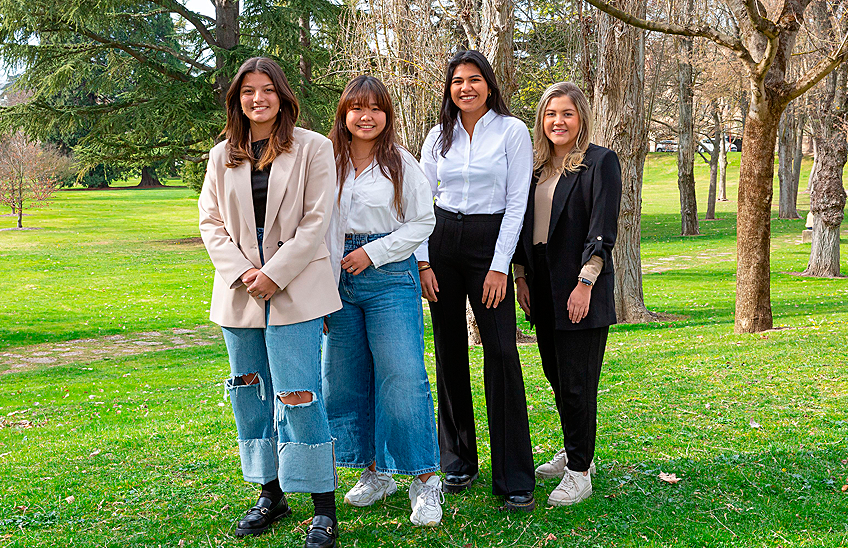Jerusalem Hernández: "Sustainability is about transforming the business models of organisations to respond to the challenges of the future".
KPMG's Sustainability and Good Governance partner inaugurated the Green Week at the University and stressed the need to address sustainable development in a cross-cutting manner, from all disciplines.

FotoManuelCastells/Jerusalem Hernández, during the session on sustainability that he gave yesterday at the University of Navarra, on the occasion of Green Week.
02 | 03 | 2022
"Jerusalem Hernández, Sustainability and Good Governance partner at KPMG, was in charge of opening the Green Week organised by the University of Navarra and Campus Home, and she did so by posing this question to those present in a session she entitled "The future will be sustainable... or not? "Sustainability is in all options", he said, "it consists of the transformation of business models, of management and of the governance models of organisations in order to anticipate a future full of economic, social and environmental challenges". Jerusalem Hernández spoke of the transforming power of businesss, of identifying the challenges we face in order to achieve a sustainable development and of the need to innovate and invent solutions in a transversal way, from all disciplines: from science, speech or Economics and to implement a different leadership model , based on learning skills and acquiring criteria.
During his speech, Jerusalem Hernández identified some of the challenges that the new generations were going to have to face: an increasingly ageing population, the scarcity of resources, a welfare state that is once again at risk, the unsustainable generation of waste and the migration of people fleeing the effects of climate change: "In 2020 alone, 30.7 million people were forced to move to leave these adverse conditions behind," he said.
Jerusalem Hernández warned that we are in a moment of crisis, which generates mistrust and frustration, but added that the pandemic has served to highlight "the need to reposition ourselves, to be resilient and adapt to a new reality. It has been a step forward on subject for sustainability".
The KPMG executive spoke about sustainability in all its aspects: biodiversity, climate change or the circular Economics . She then referred to everything that has to do with people, human rights, equity, equality and attracting and retaining talent; and finally, ethics and sustainable corporate governance.
The transformational capacity of companies
"Totalk about sustainability is to talk about multilateralism because sustainability is everybody's business. Global problems require global solutions. Hernandez gave as an example the two major agreements that had been reached around sustainability: the diary 2030 that defined the Sustainable development goals (SDGs) and the agreement at the Paris climate summit, at COP21, which put limits on global warming. "But it's going to take a lot of investment, agreements, development, invention and innovation. Most of the solutions we don't have. You, in each of your disciplines, can dedicate yourselves to researching what those solutions will be, which, by the way, will be very profitable," he said. "The university is the ideal ecosystem for learning how to innovate and learning how to invent. And what do stakeholders say? Employees want to work in sustainable companies, investors are the first to ask companies for sustainability indicators, customers are willing to pay a little more for that sustainable product. "We expect more and more from companies. Sixty-nine percent of the world's largest economies are not states, they are companies, which are the ones that are going to have the capacity to transform." In this sense, Hernandez said that we are facing a new capitalism: "companies not only have to refund profitability to the shareholder but they are also there to generate value that transforms the future and share it". Jerusalem Hernández was accompanied by Paloma Grau, Vice President of research and Sustainability of the University of Navarra, who encouraged those present "to go deeper and seek the truth through knowledge , which allows us to have an attitude towards people, the environment and sustainability".
Jerusalem Hernández's session was the starting point of a week focused on sustainability and entrepreneurship at the University, in which students will be able to participate in sessions at training with companies from mobility sustainable, energy efficiency, etc.; workshops on recycling clothes and cooking; and activities at volunteer activities until next Saturday, 26 March.




